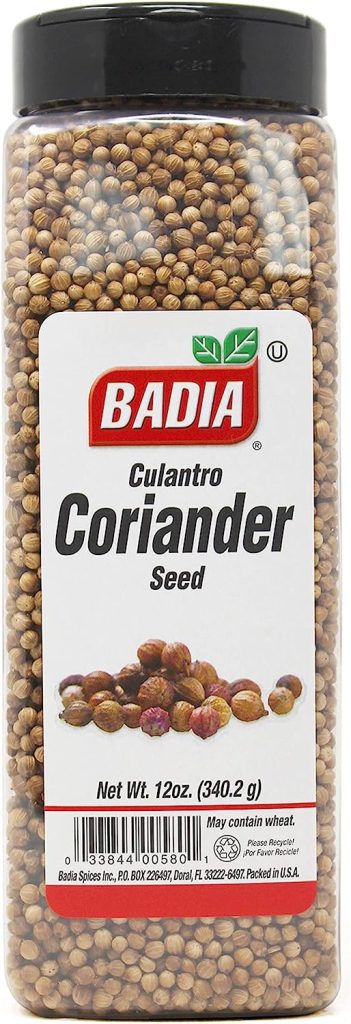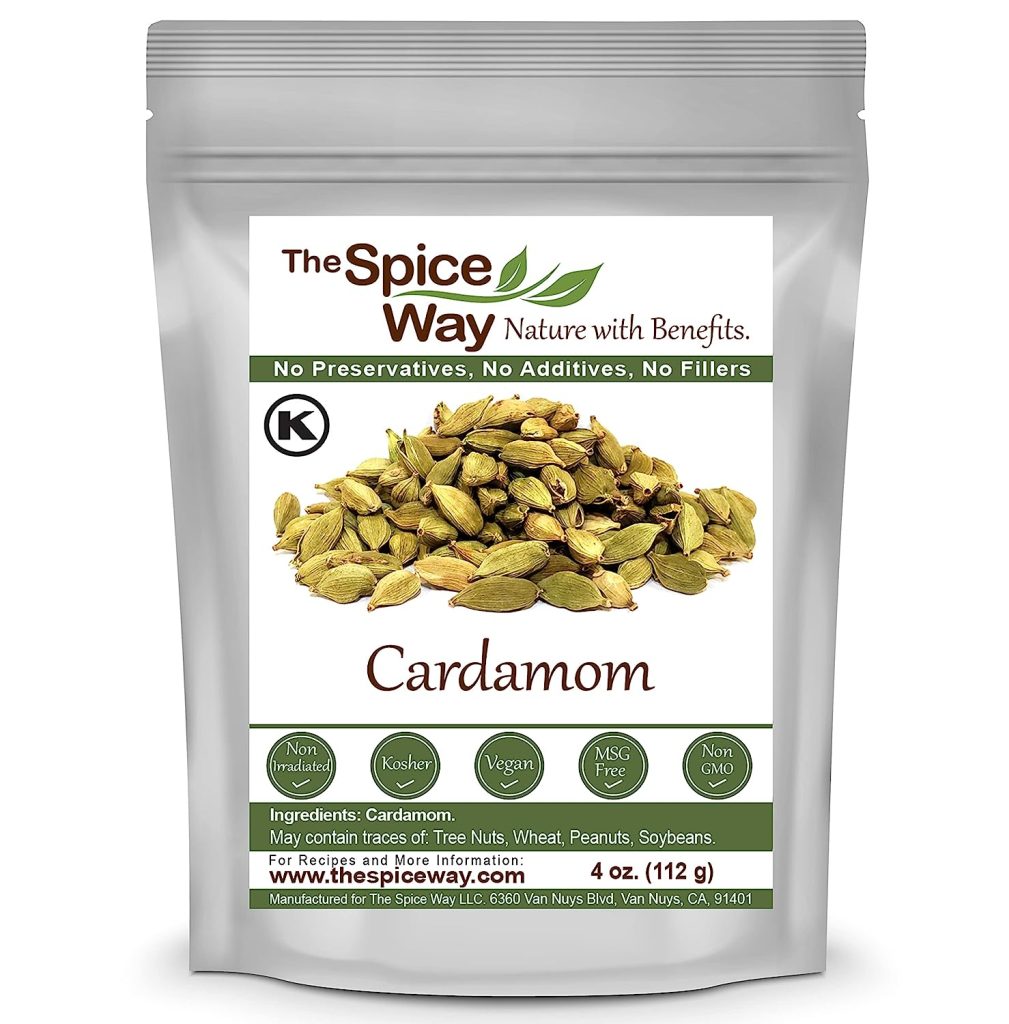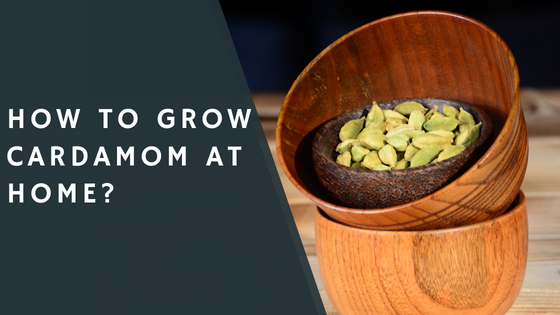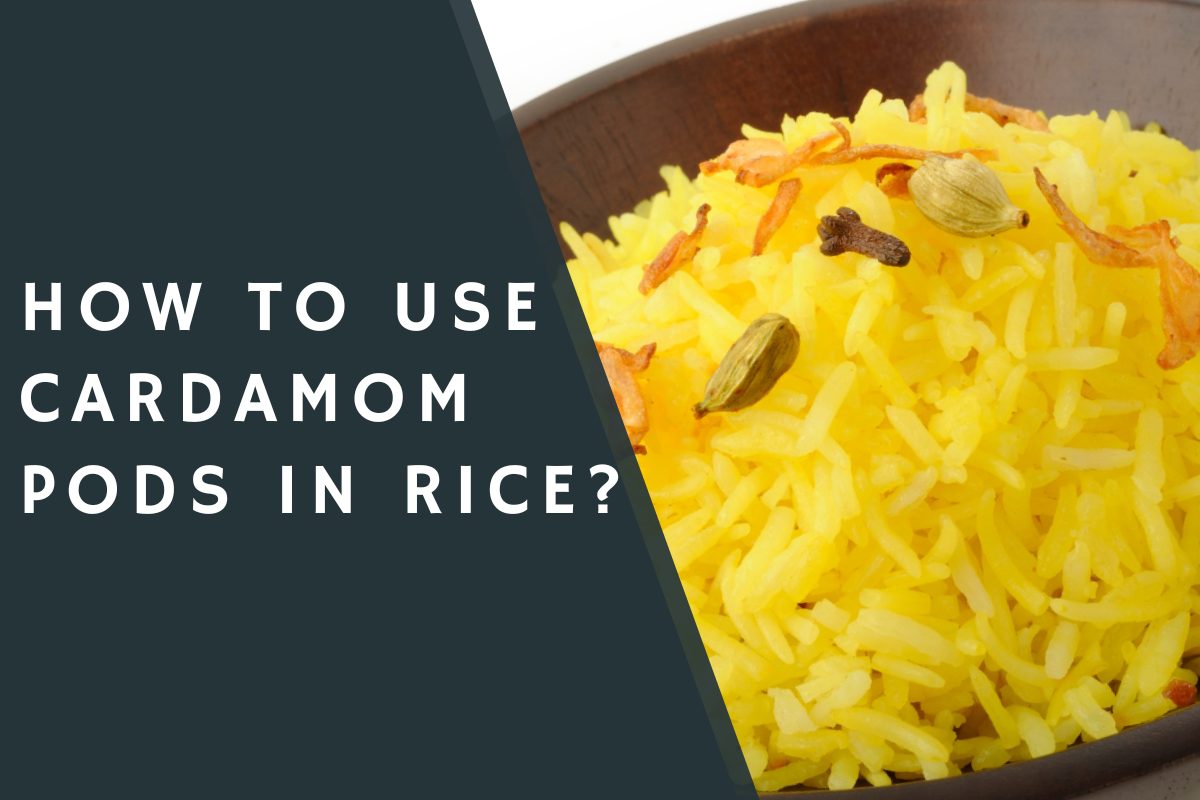When it comes to coriander vs cardamom, there are a few key differences that set these two spices apart. For one, cardamom has a sweeter, more floral flavor, while coriander is more citrusy and pungent.
Additionally, cardamom is typically used in desserts and sweet dishes, while coriander is more often used in savory dishes. Cardamom is native to India and Sri Lanka, while coriander is native to the Mediterranean.
Cardamom pods are small and green, with black seeds inside. Coriander seeds are larger and brown. When ground, both spices have a powdery consistency.
In terms of health benefits, both cardamom and coriander offer some antioxidant and anti-inflammatory properties. They can also help aid digestion and relieve gas and bloating.
However, cardamom has been shown to have additional benefits for heart health, including lowering blood pressure and bad cholesterol levels.

See Also: Black Pepper vs White Pepper
What Is Coriander?

Coriander, also known as cilantro or Chinese parsley, is an annual herb in the family Apiaceae. Native to regions spanning from southern Europe and northern Africa to southwestern Asia, it is a soft plant with blue-green leaves and white flowers.
The seeds of the coriander plant are used as a spice, while the leaves are used as an herb. The word “coriander” can refer to the entire plant, including the leaves, stems, seeds, and roots.
The leaves and stems have a strong citrus flavor, while the seeds are more nutty and earthy. When used as a spice, coriander seed is usually ground into a powder. Coriander has been used for centuries in traditional medicine for its purported health benefits.
These benefits include improved digestion, lower blood sugar levels, reduced inflammation, and relief from anxiety and stress. In spite of this, these claims are not backed up by strong scientific evidence.
What Is Cardamom?

Cardamom is a spice that comes from the seeds of the cardamom plant. It has a strong, unique flavor that is often used in Indian and Middle Eastern cuisine. Cardamom is available in whole, ground, or powder form.
Benefits of Coriander and Cardamom
Coriander and cardamom are two spices that offer a variety of benefits. The following points should be taken into account:
- Coriander is a good source of antioxidants, which can help protect the body from damage caused by free radicals.
- Cardamom is a good source of potassium, which is an important electrolyte for the body.
- Coriander can help to lower cholesterol levels and improve circulation.
- Cardamom has been shown to be effective in treating indigestion and nausea.
- Both spices can help to boost the immune system.
Coriander and Cardamom Nutrition Value
Coriander and cardamom are both popular spices with many health benefits. Here’s a look at the nutrition value of these two spices:
Coriander:
Coriander is a good source of vitamins A, C, and K. It also contains minerals like iron, magnesium, and manganese. One tablespoon (tbsp) of coriander seeds has about:
- Calories: 20
- Protein: 1 gram (g)
- Fat: 1 g
- Carbohydrates: 4 g
- Fiber: 2 g
- Sugar: 0 g
- Vitamin A: 10% of the Daily Value (DV)
- Coriander is also a good source of antioxidants like quercetin and kaempferol.
Cardamom:
Cardamom is an excellent source of vitamins C and A. It also contains minerals like potassium, calcium, phosphorus, and magnesium. One teaspoon (tsp) of ground cardamom has about:
- Calories: 5
- Protein: 0 g
- Fat: 0 g
- Carbohydrates: 1 g
- Fiber: 0 g
- Sugar: 0 g
- Cardamom is also a good source of antioxidants like quercetin and kaempferol.
Which Is Stronger Coriander or Cardamom?
If you’re wondering whether cardamom or coriander is stronger, the answer may surprise you. Coriander is actually the stronger of the two spices, while cardamom has a more delicate flavor.
This is because coriander is a member of the parsley family, which includes other strong-tasting herbs like cumin and fennel. Cardamom, on the other hand, belongs to the ginger family and is related to other milder spices like cloves and nutmeg.
So if you’re looking for a spice with a strong flavor, go for coriander. But if you prefer something with a more delicate taste, cardamom is the better choice.
Can I Replace Coriander with Cardamom?
Coriander and cardamom are two popular spices used in Indian cooking. There are some key differences between them, though they share a similar flavor profile.
Coriander is a seed spice, while cardamom is a pod spice. This means that they have different textures and flavors. Coriander is more pungent and has a lemony flavor, while cardamom is sweeter and more aromatic.
When it comes to substitutions, you can use either spice in place of the other. However, keep in mind that the flavors will be different. If you’re looking for a true coriander flavor, use cumin instead.
Does Coriander Smell Like Cinnamon?
Cinnamon and coriander actually share a lot of similarities in terms of their flavor profiles. Both spices have warm, earthy notes with a hint of sweetness.
However, where they differ is in their intensity. Cinnamon is much more potent than coriander, so it can easily overwhelm other flavors in a dish. Coriander, on the other hand, is more subtle and can be used to add depth to a dish without overpowering it.
In terms of smell, cinnamon is also more pungent than coriander. While both spices have a pleasant aroma, cinnamon is much sweeter and more intense.
Coriander, on the other hand, has a more complex scent that includes floral and citrus notes. So while they may smell similar at first glance, there are definitely some distinctions between the two spices.
Conclusion
c
Coriander vs Cardamom So, what’s the verdict? Both cardamom and coriander have their own unique flavor profiles that can enhance a dish in different ways. If you’re looking for a warm, spicy flavor, then cardamom is your best bet.
But if you want something with a more complex, earthy taste, then coriander is the way to go. Ultimately, it comes down to personal preference — so experiment with both spices and see which one you prefer!
I am an accomplished tech writer with a passion for simplifying complex technology concepts. With a background in Tech, James has dedicated their career to making the intricacies of the digital world accessible to a broad audience.








